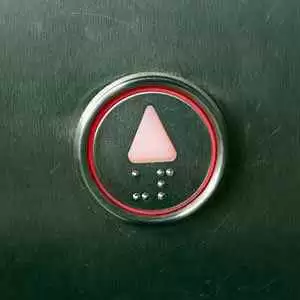
Celiac.com 10/31/2013 - I recently made a post on Instagram that gained a significant amount of attention. A before and after photo with a caption that read “dairy and coffee free” had viewers confused. The attention was not due to my physique but instead to the concern of eliminating coffee as part of a wellness regimen. When over 1000 “likes” and 30 comments were made, I realized that little is acknowledged about the matter. There are certainly far worse things for your health than coffee and caffeine yet I’m compelled to share its undesirable effects. I do not claim that drinking coffee ruins your health and take into consideration that every individual has unique dietary needs and intolerances. Years following my celiac diagnosis, eliminating coffee (and dairy) changed my life. I hope it will do the same for you.
Concerns:
- Chronic Fatigue
- Suppressed Immunity
- Increased Inflammation
- Deflated Mood & Cognition
- Acidic Content
- IBS Symptoms
- Weight Retention
Celiac.com Sponsor (A12):
Fatigue & Immunity
There are few things more frustrating than the lack of energy to perform normal tasks. Fatigue is one the most common and difficult symptoms to treat with celiac disease. When speaking to individuals about coffee consumption typical responses are, "I need the energy, I MUST have my coffee. I can’t go without it.” The irony is that caffeine is a major cause of fatigue. Most of us are familiar with the 2pm crash that comes with the workday. “Well no worries, I’ll have another cup of coffee” you might say. – This is where trouble begins. When it comes to caffeine, fatigue is determined by the amount of milligrams consumed. Studies have shown that fatigue heightened in individuals who had three cups of coffee and was the highest in those who had five cups.
Continuous coffee and caffeine consumption places the body into a chronic state of stress or emergency. Caffeine signals the adrenal glands to produce stress hormones that are responsible for the “fight or flight” response. While useful for outrunning grizzly bears, it’s not intended for constant and sedentary use. The perked attention after drinking coffee is the body’s response to the unnecessary secretion of stress hormones. The energy felt after drinking coffee is actually your body battling the stimulated fight or flight response.
Studies have shown that constant stress impairs the immune system to respond to normal hormonal ques. The excessive amount of stress hormones deters communication within the immune system posing for additional complications with auto-immunity conditions. Once in this state of emergency the body seeks out reserves and depletes vitamins and minerals the immune system rely on. With celiac disease, inadequate absorption of vital nutrients and immune deficiency already pose as threats absent of caffeine consumption. Not to mention, B-vitamins are also depleted which aids in utilizing food for energy, thus exasperating symptoms of fatigue.
Deflated Mood and Cognition
Coming down from the caffeine high (you’ll have to eventually) may cause exhaustion, hindered cognition, and moodiness.
“Wait, moodiness? But caffeine elevates your mood and helps you concentrate.”
There are claims that coffee aids in treating depression and moodiness and here’s why; within minutes of drinking coffee, the central nervous system is firing neurons, sending signals to the brain, and pumps out adrenalin. The perked attention for someone exhibiting depressive symptoms would certainly feel beneficial. Unfortunately, this is short lived, fails to treat the underlying cause of depression/moodiness, depletes vitamins that aid in brain functioning, and slows oxygen to the brain. Have you ever heard an athlete use the term adrenalin dump? If adrenalin becomes too high before an event, the athlete will crash too early during their performance. It’s the same idea with coffee; after the alertness dissipates, the individual is left to crash and potentially in a worse mood.
Although mild in comparison, caffeine manipulates the same neurochemical activity as amphetamines, cocaine, and morphine. (I’m NOT implying that coffee is equivalent to the previous examples but simply presenting the connection). Although different drug types, each stimulate the central nervous system to a degree causing temporary feelings of elation, pain relief, attentiveness, and suppressed appetite. These sound like great things but most of us understand the potential danger and addictive nature of these stimulants.
IBS & Acidic Content
“It sounds like caffeine is the culprit not coffee. So I’ll have decaf more often.”
That’s a good start, but first: Cutting back is useful in combatting issues associated with caffeine but the acidic make-up of coffee must also be considered.
It’s commonly understood that coffee is a trigger for IBS. Even in modest amounts, coffee produces a laxative effect within minutes after drinking. This applies to decaffeinated coffee as well and provides that caffeine is not the only culprit for IBS symptoms. Decaffeinated coffee is found to contain higher amounts of acid than regular coffee and stimulates acid production in the body. Excessive acid damages the intestines, resulting in absorption, immunity, and over-all health issues. There are numerous drinks containing a higher acid content than coffee. Sports drinks for instance, contain nearly double the amount of acid as coffee. Having sports drinks in effort to rehydrate from a cup of coffee enhances potential complications from acid damage.
“I don’t have IBS. I like coffee because it keeps me regular”
Achieving regularity by means of coffee consumption may indicate the need for dietary changes. Using pro-biotics and eating adequate amounts of fiber achieve regularity and are conducive towards overall health. Even if the constant need for the bathroom is not an issue, consider caffeine’s diuretic effects such as dehydration, impaired digestion, and constipation.
Weight Retention
“I like coffee because it curves my appetite.”
Adrenaline stimulation releases and emits stored blood sugar. Insulin releases and blood sugar drops below normal. You’ll be hungrier than before in no time.
Keep in mind that excess insulin is known to:
- Promote the storage of fat = weight gain
- Retain sodium = holds water weight and causes high blood pressure
- Increase amounts of inflammatory compounds in your blood! Inflammation is a killer and especially dangerous in increasing symptoms for those with celiac disease.
I believe that individuals suffering from gastrointestinal disorders could greatly improve their life by eliminating coffee. I also understand that making such claims are “fighting words” for those who love their daily brew. Although uncomfortable and challenging to give up, consider the potential hindrance coffee and caffeine poses for healing. It may be your answer and missing ingredient to feeling better.
Best of luck.
Sources:
- Active Wellness By Gayle Reichler MS RD CDN, page 12
- Disease Prevention And Treatment by Life Extension Foundation, page 739
- Textbook of Natural Medicine Volumes 1-2 by Joseph E Pizzorno and Michael T Murray, page 433
- Caffeine Blues By Stephen Cherniske MS, page 10 Lane, J.D. 1994.
- Neuroendrocine Responses to Caffeine in the Work Environment. Psychosomatic Medicine. 546:267-70. Rao, S.S., Welcher, K., Zimmermn, B. and Stumbo 1998. Is coffee a colonic stimulant?








Recommended Comments
Create an account or sign in to comment
You need to be a member in order to leave a comment
Create an account
Sign up for a new account in our community. It's easy!
Register a new accountSign in
Already have an account? Sign in here.
Sign In Now